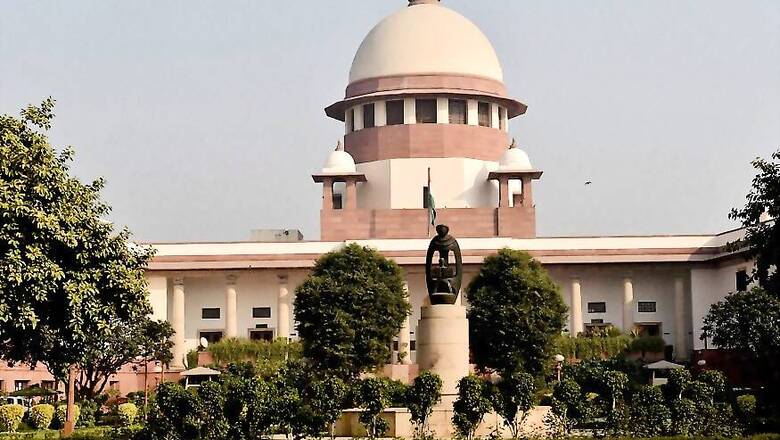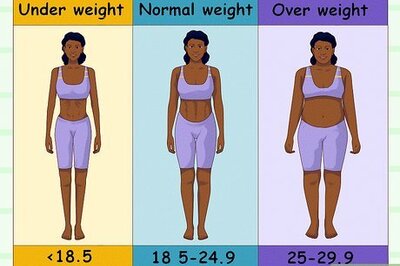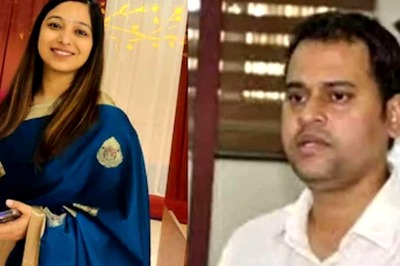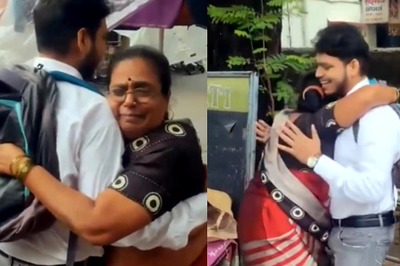
views
New Delhi: As the nation waited for the Supreme Court hearing on triple talaq to commence with bated breath, the five-judge bench on Thursday heard the petitioners who contended that the practice of unilateral divorce is "un-Islamic".
At this juncture, the CJI expressed concern as to whether this law had brought the Sunnis at par with Shias. To this, Justice Nariman said that the said law included all the Muslims.
"During a divorce, both the parties need to appoint an arbitrator who tries to solve the dispute, unless all the issues of maintenance, custody of a child and payment of Mehr are settled. Triple Talaq is a non-issue as it just cannot be done without mediation," said Khurshid, calling instant triple talaq completely against Quran.
Justice Nariman said there was no need to quote the Quranic Verses because “these were revealed during the medieval Arabic period and was targeted to remove the ill practices of divorce during that period."
Justice Nariman also questioned as to "what was Shariat and whether it was personal law or not?" He also said that "let's be very clear on what is being attacked here. It's whether triple talaq forms a part of Islam or not."
Surprisingly, even senior advocate Ram Jethmalani appeared on behalf of a triple talaq victim. He requested the bench to be allowed to make submissions in the case. CJI Khehar said "we will permit you to submit".
The counsels also submitted that Talaq-e-Biddat was not a part of Islam and hence was out of the purview of the Muslim Shariat Application Act of 1937.
Indira Jaising, appearing for Bebaak Collective, an intervening applicant, stated that the questions on personal laws not being in tandem with the Constitution have often been brought before the apex court, but time and again the court has not dealt with the matter. She cited examples on how a challenge to Section 9 of the Hindu Marriage Act, Section 6 of the Hindu Minority and Guardianship Act was unsuccessful in the court as the judiciary refused to hold personal laws constitutionally null and void. She even cited a case of a Parsi woman who has approached the court for justice when she was denied to attend a funeral.
She questioned whether the Constitution stops where family law begins? She stated that personal law was not based on religion.
The Chief Justice pertinently noted that the submission might fail because after the passage of the Shariat Act of 1937, Muslim personal law had become statutory and hence came under the purview of law. However, not all members of the bench appeared to be on the same page.
The bench has made it extremely clear that it would not venture into the subject of Article 25 or whether the practice of divorce forms a part of it, stating that "it was a very broad area'. However, Jaising seemed displeased and said, "The court has been avoiding this issue for the past 50 years and even now if it chooses to do so then I cannot say anything, but this ghost needs to be exorcised someday".
Petitioners also laid down that India is a democracy and not a theocratic state, and hence it doesn't need religious courts like Darul Qazas, Shariah Courts, Parsi courts etc.
When the contention of violating Article 14 was raised, Justice Nariman remarked, "Don't go there, it's another hornet's nest."
While concluding the day's hearing, Justice Joseph raised a question which was echoed by his brother judges. He said, "Suppose we abolish triple talaq, then how will Muslim men seek divorce? What is the fall back option?"




















Comments
0 comment